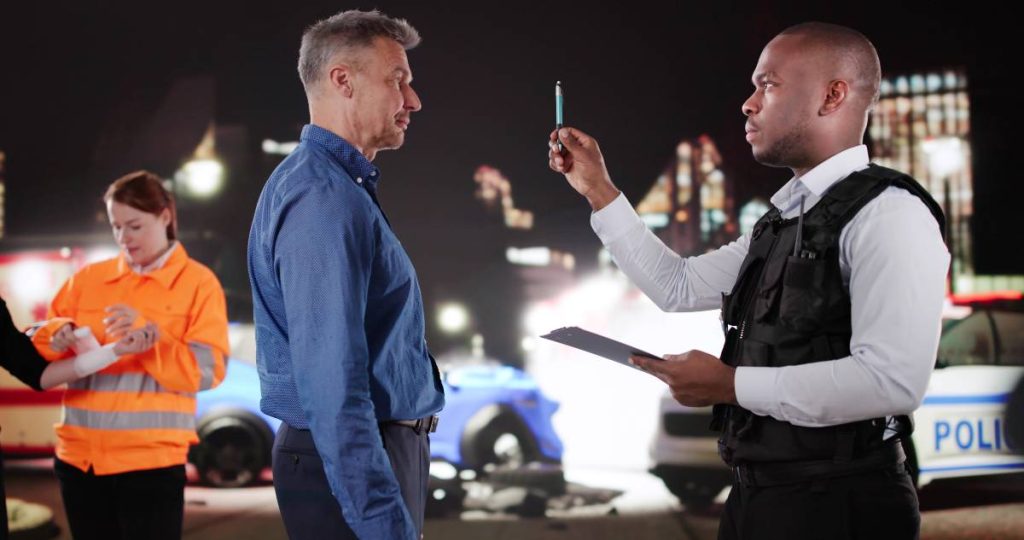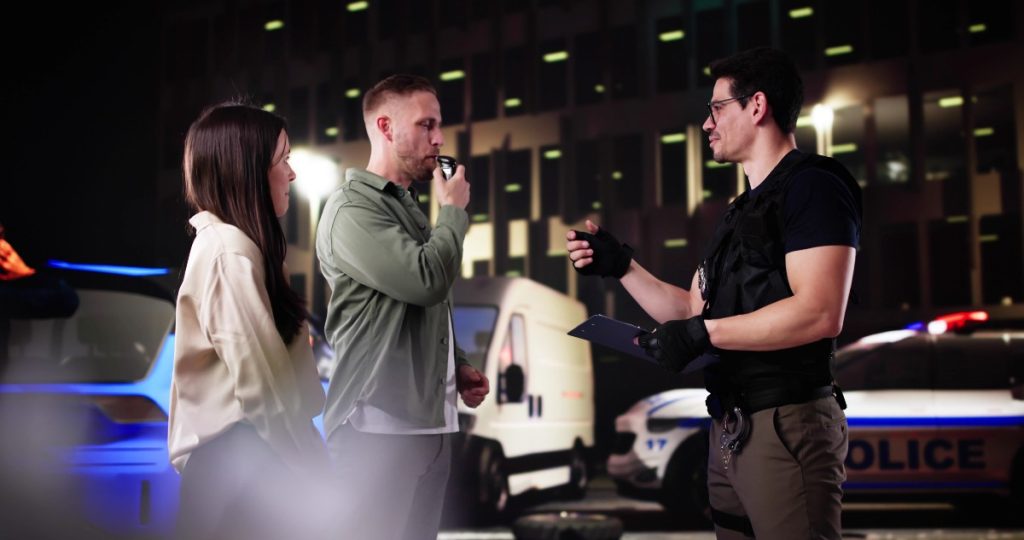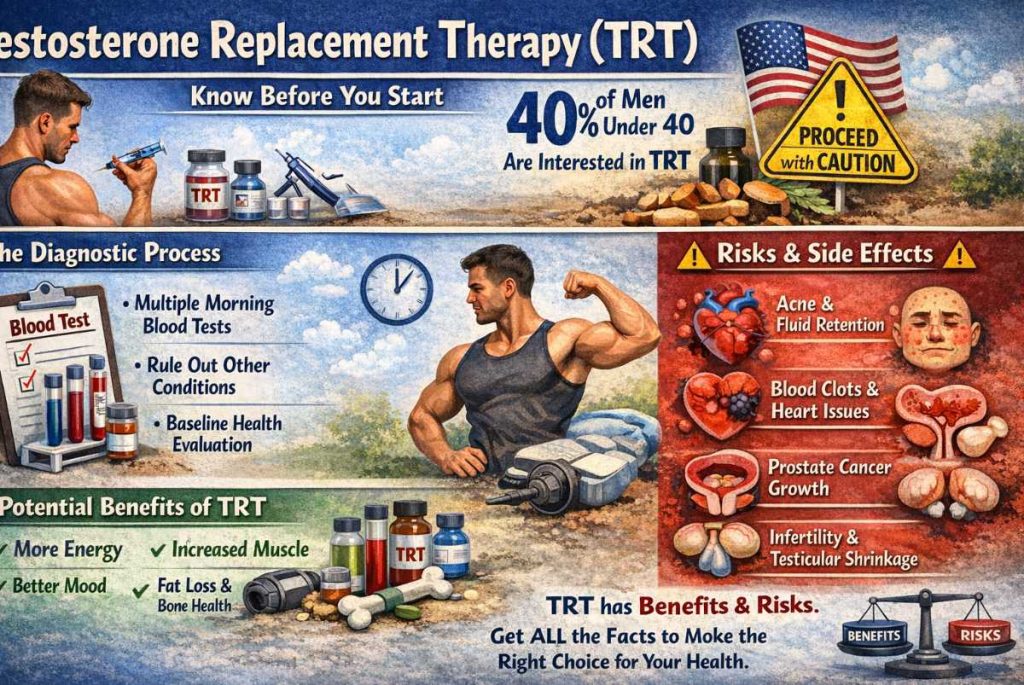So you’re driving down the road in Florida and suddenly you see a bunch of police cars, cones, and flashing lights ahead. Your heart starts racing because you realize you’re about to go through a DUI checkpoint. Are these things even legal? Can they just stop you for no reason?
The short answer is yeah, DUI checkpoints are totally legal in Florida. Law enforcement uses them all the time to catch drunk drivers, and both state and federal courts have said they’re okay.
But here’s the thing – just because they’re legal doesn’t mean you don’t have rights when you go through one.
Understanding how Florida DUI checkpoints work, what you have to do, and what you absolutely don’t have to do can save you a lot of stress and potentially keep you out of serious legal trouble.
Why Florida Can Legally Set Up These Checkpoints
Florida allows DUI checkpoints because the U.S. Supreme Court and state courts have said they’re constitutional, but only if cops follow really strict rules. They can’t just set up wherever they want and stop whoever they feel like stopping.
Police departments have to use data about where drunk driving accidents happen most to decide where to put checkpoints. They also have to announce ahead of time where and when they’re gonna be doing them – you’ll usually see it in local newspapers or on police department websites.
The big thing is they have to stop cars using some kind of neutral system, like every third car or every fifth car. They can’t just pick and choose who to stop based on what people look like or what kind of car they’re driving. That would be profiling, and that’s definitely not allowed.
These rules exist to make sure checkpoints don’t violate the Fourth Amendment, which protects you from unreasonable searches. As long as the police follow these procedures, Florida courts will say the checkpoints are legal.
What Actually Happens When You Go Through One
When you get to a checkpoint, you’ll see signs telling you what’s happening and officers directing traffic. You have to stop when they tell you to – you can’t just blow through or try to avoid it. Once you stop, you need to roll down your window and show them your driver’s license, registration, and proof of insurance.
The officer will probably ask you if you’ve been drinking tonight. Here’s something a lot of people don’t know – you don’t have to answer that question. You can just say you’re exercising your right to remain silent, or you can just not respond at all.
If the officer thinks you might be impaired – maybe your speech is slurred, they smell alcohol, or you seem nervous – they might ask you to pull over to the side for more testing. This is where things can get more complicated, but just stay calm and remember you still have rights.
Most of the time, if you’re sober and polite, the whole thing takes maybe 30 seconds and you’re on your way. But if you’ve been drinking or you’re acting weird, that’s when you might have problems.
You’ve Got Rights, Even at Checkpoints

Just because you’re at a DUI checkpoint doesn’t mean you give up your constitutional rights. You can refuse field sobriety tests – you know, the ones where they make you walk in a straight line or touch your nose. You can also refuse the preliminary breath test that they might ask you to take roadside.
But here’s where it gets tricky – if they actually arrest you for DUI, refusing a chemical test at the police station can get your license suspended under Florida’s implied consent laws. So there’s a difference between the roadside tests and the official tests after you’re arrested.
You also have the right to remain silent beyond just telling them your name and showing your documents. Officers can’t search your car without probable cause or your permission. If you think they violated your rights, try to remember as much as you can about what happened so you can tell a lawyer later.
Don’t let them pressure you into agreeing to things you don’t have to do. Stay polite, but don’t be afraid to exercise your rights.
Don’t Make These Common Mistakes
The biggest mistake people make at DUI checkpoints is talking too much. They get nervous and start babbling about how they only had “a couple of drinks” or they were “just coming from dinner.” Don’t do this. Anything you say can be used against you later.
Another mistake is agreeing to do field sobriety tests when you don’t have to. These tests are designed to make you fail, especially if you’re nervous or have any physical issues. You’re not required to do them, so don’t let the officer pressure you into it.
If they ask you to pull over for additional screening, you can politely ask if you’re being detained or if you’re free to go. Sometimes they’ll let you leave if you ask the right questions, but don’t be confrontational about it.
Stay calm, be respectful, and keep your mouth shut except for providing the documents they’re legally allowed to ask for. Don’t volunteer information or consent to searches just because you’re scared.
Know Your Rights and Stay Cool
DUI checkpoints are legal in Florida, but that doesn’t mean you’re helpless when you encounter one. Understanding what you have to do and what you don’t have to do can make a huge difference in how things go.
Stay informed about your rights, don’t volunteer information you don’t have to give, and avoid the common mistakes that can get you in trouble. If you do get arrested, get a lawyer immediately – don’t try to handle it yourself.
The key is staying calm and knowing the rules. Most checkpoint stops are quick and painless if you know what to expect and don’t do anything to make the situation worse.





